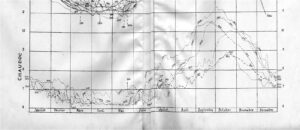Incubation
"Improving Risk Communication in Water-related Disasters by Integrating Prevention of Mosquito-borne Infectious Diseases: A Case of Penang, Malaysia"
R4-5 1-2 (R5 AY2023)
| Project Leader | Yoshikawa Minako "Jen" (Kyoto University, Center for Southeast Asian Studies) |
| Collaborators | CHONG Khai Lin (Universiti Utara Malaysia, Disaster Management Institute) ABDUL NIFA Faizatul Akmar (Universiti Utara Malaysia, Disaster Management Institute) Rakwi Nensar Wai Wai Phyo (The University of Tokyo, Graduate School of Medicine) MOI Meng Ling (The University of Tokyo, Graduate School of Medicine) Okamoto Masaaki (Kyoto University, Center for Southeast Asian Studies) |
| Research Project | Improving Risk Communication in Water-related Disasters by Integrating Prevention of Mosquito-borne Infectious Diseases: A Case of Penang, Malaysia |
| Countries of Study | Malaysia |
Outline of Research
In the event of water-related disasters in tropical destinations, residents and visitors must be cautioned against the risk of mosquito-borne infectious diseases. Dengue is a life-threatening infectious disease that spreads after water-related disasters. However, currently, local risk communication before, during, and after water-related disasters includes little or no information about dengue prevention and control. We will conduct field research at the World Heritage Site of Penang, Malaysia, to 1) identify and visualize high-risk areas requiring integrated risk communication for local information dissemination and 2) collect images of environmental factors that are likely to contribute to flood occurrences and mosquito breeding. Thus, we hope to address the lack of visual information and propose a medium for risk communication that alerts potential visitors to George Town. Given the ongoing climate change, water-related disasters and subsequent mosquito-borne infectious diseases will continue to threaten societies, especially in tropical and subtropical areas. A series of research activities involving researchers in Japan and Malaysia will facilitate academic exchanges across national borders and academic disciplines, thereby contributing not only to practical solutions but also to the human development of interdisciplinary researchers.
Purpose of Research, Its Significance and Expected Results, etc
To devise a new tool for the integrated risk communication of water-related disasters and dengue prevention and control, we will conduct field research in George Town, a World Heritage Site in Penang, Malaysia. Although considerable research has been devoted to natural disasters and mosquito-borne dengue in Malaysia, scholarly discussions addressing the integral prevention and/or mitigation of these life-threatening hazards are insufficient. Further studies, including virus detection in local mosquitoes, are required to accurately identify high-risk areas. Field research will involve multiple disciplines, including Natural Disaster Science (especially engineering) and Medical Science (particularly Infectious Disease Medicine and Entomology). We will identify high-risk areas based on the following three factors: 1) water-related disasters have either occurred or are expected to occur; 2) incidence and/or propagation of vectors can be confirmed or feared with the presence of stagnant water; and 3) tourists, especially visitors from overseas locations, are concentrated. We will also conduct secondary research in the areas of Political Science and Management to investigate factors that obstruct inter-ministry and/or interagency collaboration in communicating the risks of water-related disasters and mosquito-borne infectious diseases in Malaysia.
This international collaborative research initiative will generate practical opportunities for Malaysian disaster specialists and Japanese medical and social scientists to share their knowledge and experience. It is hoped that this initiative will pave the way for a network of Japanese and Malaysian researchers to unite disaster prevention and mitigation efforts.
Water-related disaster management, including dengue prevention and control, requires researchers to lead multinational research teams and conduct multi-, inter-, and trans-disciplinary research beyond a single area of expertise. The present research grant will help develop such researchers by providing graduate students with practical opportunities to actively participate in interdisciplinary field research and subsequent analyses. Furthermore, early career researchers in Malaysia in the research team will engage in discussions with experts in Singapore, which will hopefully promote academic exchange and the expansion of research networks in the Southeast Asian region. The results of this study are expected to contribute to improving Penang’s resilience to water-related disasters and mosquito-borne infectious diseases. Although our findings may be most applicable to Penang, Malaysia, we expect that the new integrated risk communication tool developed through this initiative will be useful at other international travel destinations.


